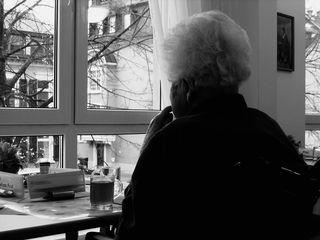Depression
The Golden Years...Not So Golden.
The reality for many in their years of retirement, but there's hope.
Posted September 28, 2016

While our years of retirement, or what some refer to as our “golden years,” are generally thought of as the period in which we comfortably transition into our final stage of life and enjoy the fruits of our labor, that is far from reality for many. Debilitating illnesses, both physical and psychological, can often hinder us from living our golden years to the fullest.
Studies indicate that one in every three individuals between 65 and 85 suffer from some type of mental disorder, such as anxiety, depression or addiction. The majority of people misidentify their depression as normal feelings of sadness. Often characterized by oversleeping and under eating, depression can manifest itself in several forms of symptomatology, such as insomnia, overeating and even irritability. It is also falsely believed by many that being depressed in our golden years is normal, or that depression as a psychological condition fails to exist due to internalized feelings of shame associated with the negative stigma of having a mental illness. Unfortunately, this misrepresentation and stigma adversely affect the quality of life, the quality of treatment and access to such treatment for seniors, as mental health is not addressed or treated with the level of attention that it should be by most physicians.

Depression and other emotional conditions alike can increase the risk of medical diseases, such as Alzheimer’s disease, or conversely, be the product of such diseases. Furthermore, the Alzheimer’s Association purports that Latinos in the United States are at a higher risk of developing Alzheimer’s disease than other ethnic groups due the acutely high rates of diabetes and blood pressure that exist within that population.
So, with all this being said, why wait for a solution? Be proactive and ask your physician or therapist for a recommendation for treatment or medication if you feel that it may be beneficial to you. Even aspects of our health that we may find insignificant, such as sleep, are essential to functioning properly and must be examined by a professional, as nearly half of adults over 60 experience insomnia, according to NIH Senior Health.
On an emotional and spiritual level, there's a lot we can do to feel good. Think of the last day of your life. How will you feel to reflect on your journey? What have you done well, or not so well? If today is the last day of your life, what would you regret not having done differently? Make your own list and get ready to make your life that which you've always wanted it to be. Maybe there's someone you need to apologize to or forgive, and in doing this, you will find peace. Perhaps there's someone you need to thank, and in doing so, you will find satisfaction. You may have forgotten to tell someone how much you love them, and in doing this, you will find fulfillment. Sometimes these small, yet great, things are what keep us from feeling happy. Other times, however, it is the adversity we've lived through that we keep repeating in our minds without being able to forget it. There is also treatment for this.

However, sometimes our well-being is associated to hereditary factors. For example, dementia brought about by Alzheimer's has a genetic component. Even so, there is a lot we can do for our well-being, such as eat well (natural foods, such as vegetables, fish, nuts, olive oil, and less carbohydrates, fats, fried foods, sugar, etc...), exercise (which doesn't necessarily mean the gym, but something feasible and convenient such as walking and gardening; things we often fail to do as a result of our modern lifestyles), lower stress, and train our minds. By doing the aforementioned activities, we gradually create a perpetual cycle of wellness that is interconnected and fueled by each respective component. If you are already partaking in some of these healthy habits, try to develop new ones, and stick to them. For example, if you're already exercising your mind with puzzles, try to learn a different language or take classes to learn photography or a musical instrument to further challenge yourself. Video games are not as bad as they seem, especially when they stimulate various areas of the brain and require us to do multiple tasks simultaneously. In this regard, there are several video games that are being developed for clinical use, based on the notion that mental training can prevent dementia brought on by Alzheimer's. However, video games can also cause social isolation, which should compel us not to play more than 30 to 45 minutes per day.

A social life is a major key in maintaining a healthy life. Additionally, most people who live alone but have a pet are typically healthier than those who live completely alone.Communities with a high percentage of life longevity are reported to have a strong sense of family and social support in conjunction with great respect for the elderly due to their experience and wisdom.
Thus, take contentment in knowing that your loved ones will always be there for you, and use that as motivation to live the most optimal life possible. This is your life, and you have every reason to make the most of it.


